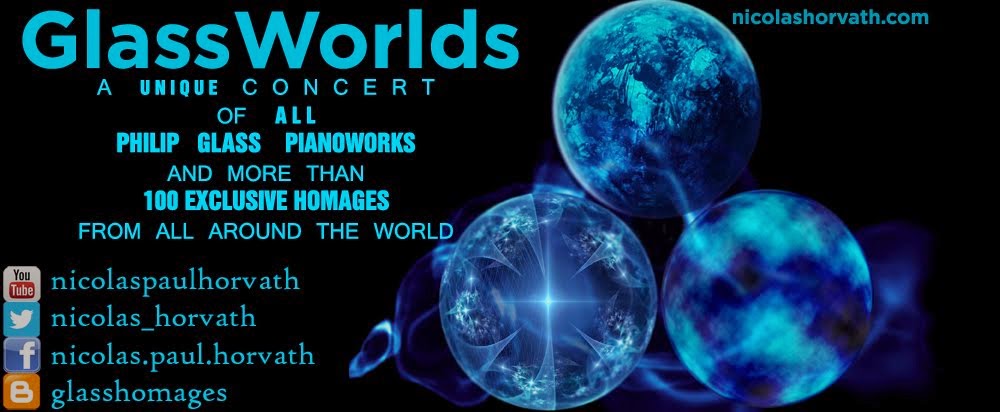Biography
Régis Campo
The music of Régis Campo is often qualified as playful, full of humor and color. His catalogued works, rich with over two hundred works for the concert stage, opera and film, makes use of different instrumental and vocal ensembles. His pieces have been premiered, performed in Europe and about thirty other countries throughout the world, by top performers.
After studying writing and composition with notably Georges Boeuf at the conservatory of his home town, and philosophy at the Humanities faculty of Aix-en-Provence, Régis Campo continued his studies at the Conservatoire National Supérieur de Musique de Paris with Gérard Grisey where he graduated with a Premier Prix in composition in 1995. At that time he met in Paris other great composers like Edison Denisov and Henri Dutilleux.
Régis Campo received in 1996 the Netherlands prize of the Gaudeamus Foundation for his work Commedia. The same year, his brass quintet Exsultate Jubilate won three prizes at the Henri Dutilleux Competition. In 1999, the SACEM awarded him the Hervé Dugardin Prize and the Académie des Beaux-Arts – the Institut de France -, the Pierre Cardin Prize. From 1999 to 2001 was in residence at the Villa Médicis, Académie de France, in Rome. Lumen for orchestra was performed by the Berkeley Symphony Orchestra conducted by Kent Nagano in September 2001 in Berkeley, California, where his First Symphony, commissioned in April 2003, was also premiered by the same performers. Dame Felicity Lott, in November 2003, premiered at the Théâtre des Champs Elysées Happy Birthday for soprano and orchestra with the Ensemble Orchestral de Paris conducted by John Nelson.
In 2005, the SACEM awarded him the SACEM Prize for young composers and the Institut de France, the Georges Bizet Prize. That same year, the Ysaÿe Quartet premiered, at the Beethoven Festival in Bonn, his first string quartet Les Heures Maléfiques. His Second Symphony “Moz’Art” was premiered in September 2005 by the Ensemble Orchestral de Paris conducted by John Nelson at the opening concert of their 2005/2006 season in the Théâtre des Champs Elysées.
In November 2008, his cycle of melodies, Le Bestiaire, based on texts by Apollinaire, for soprano and orchestra, composed for Felicity Lott and the Orchestre National de France and co-commissioned by Radio France and Musique Nouvelle en Liberté, was premiered at the festival Présence and the Festival Les Paris de la Musique. The Montreal Symphony Orchestra conducted by Kent Nagano premiered on February 20th, 2008 in Montreal his orchestration of Erik Satie’s Sports et Divertissements. In 2008, he composed the music for Fabrice Genestal’s feature film “Une enfance volée: l’Affaire Finaly” with Charlotte de Turckheim: its showing on France 2 was a big success, attracting some 6 million viewers.
His first operatic work, Les Quatre Jumelles, a opera buffa based on the play by Copi for four singers and nine instrumentalists was premiered at the beginning of 2009 at the Maison de la Musique de Nanterre and subsequently performed at the Théâtre Sylvia Montfort in Paris, the National Theatre of Mâcon, the Grand Théâtre de Reims, the Opera of Massy and at the Phénix – National Theatre of Valenciennes, among others.
Composer-in-residence at the Festival of Auvers-sur-Oise in 2009, Régis Campo composed for this occasion Eden for violin, premiered by Laurent Korcia and Homage to Georges Cziffra for piano, premiered by Zoltan Kocsis. In 2010, he was invited to the Folle Journée Chopin in Warsaw, for which he composed Seven Humoresques for mixed choir performed by the Camerata Silesia.
Of his large body of work, we should also mention the Concerto de chambre for 7 musicians (1996), the Violin Concerto (1997, revised in 2001), the Livre de Sonates (1997-1999) for organ, the Concerto for piano and orchestra (1998-1999), the LIvre des Fantasies for cello (1999), Faërie (2000-2001) for orchestra, Happy Bird (2001) a concerto for flute, two horns, percussion and string orchestra, his Premier Livre for piano 92000-2002), Pop-Art for six musicians (2002), Ouverture en forme d’étoiles (2004) for orchestra, the Cris de Marseille (2005), string quartet #3 “Ombra Felice” (2007), Color! for orchestra (2011), string quartet #5 "Fata Morgana" (2012)




Aucun commentaire:
Enregistrer un commentaire